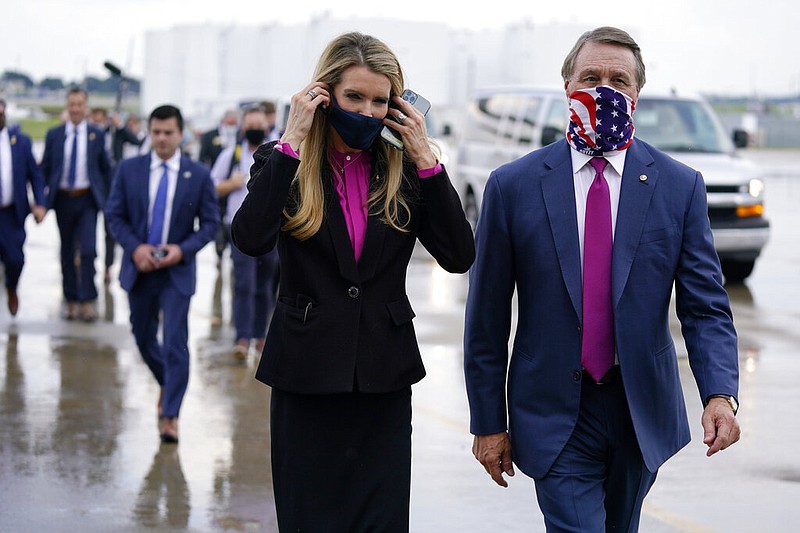One doesn't have to look very far to find articles that suggest our neighbors in the state of Georgia are racist for holding runoff elections in which it is required that the winner have a majority of the votes.
A November New York Times article calls runoffs a "vestige of segregationist efforts to dilute Black voting power." The Conversation quotes the man behind the early 1960s bill adopting them for primary elections saying they were designed to "prevent the Negro voting bloc from controlling the elections," the idea being that Blacks won't return for a runoff in numbers as they did in the general election but whites will.
However, runoffs were adopted for Georgia general elections only after the 1966 gubernatorial contest in which segregationist Democrat Lester Maddox was elected governor (but over a white Republican, who had won a plurality of votes, and not a Black candidate). And race in a runoff has never played a part in a gubernatorial or U.S. senatorial runoff since.
Interestingly, though, the threshold for a runoff winner hasn't always been 50% but varied depending on the whims of the then-all Democratic legislature. For instance, when the runoff threshold was 45% in 1996, Democrat Max Cleland was able to win a U.S. Senate seat without a runoff, even though he collected only 49.4% of the vote.
When Republicans gained more power in the Georgia legislature in the early 2000s, the runoff threshold was raised to 50%.
The New York Times and others are raising the racist suggestion today in part because a Black Democrat, the Rev. Raphael Warnock, won the most votes in last month's special election for United States senator. However, he must face appointed white Republican Sen. Kelly Loeffler in a Jan. 5 runoff to earn his seat.
If Leoffler wins, the thinking goes, the racist charge has legs.
But it's not quite that easy.
The November election was not a traditional contest in which a Republican primary winner faced a Democratic primary winner. Instead, it was a special election called to fill the seat of Republican Sen. Johnny Isakson, who resigned due to poor health. The election - often called a jungle primary - featured Republican, Democratic and independent candidates all running together.
Warnock received votes on less than a third of all ballots cast - about 32.9%, which calculates to votes from about 15.2% of all state residents. Sending anyone to Washington - Black, white, Hispanic, Asian or other, and Democrat, Republican or independent - with such a total would be a travesty.
Such elections almost demand a runoff.
The racist runoff argument also loses steam with the knowledge that all eyes would not be on Georgia for the next month without the runoff system. Incumbent Republican Sen. David Perdue already would be the winner of his regular election race over Democratic challenger Jon Ossoff with 49.7% of the vote, the next Congress already would have 51 Republicans and nobody would be talking about what President-elect Joe Biden might do with a 50-50 Senate in which Vice President-elect Kamala Harris could break ties (a possibility only if both Warnock and Perdue win).
Nevertheless, according to Dr. Chris Grant, in an article on the WGXA website, Georgia is the only state with a general election runoff following a federal primary election.
Runoffs, though, are no stranger to U.S. elections.
In Chattanooga, for instance, the elections for mayor and city council are nonpartisan. The mayor runs citywide, while council candidates run in districts drawn originally to approximate the racial makeup in the city. If no candidate gets 50% (plus one vote) in the usual March election, which will occur in 2021, a runoff between the top two finishers is held in April.
It's interesting to see what change there might be in the mayor and councils - since the current form of government was adopted before the 1990 election - if there were no runoffs and the candidates only needed a plurality of votes to win.
Over eight city elections, 10 candidates won a plurality of votes in the March contest, then lost in a runoff.
The only time it occurred in a mayor's race was 2005 when consultant/planner Ann Coulter led polling in the March election with 42.3% of the vote, only to lose to Councilman Ron Littlefield in the runoff.
Since 1990, when no council seat had an incumbent, and Bobby Tanner in District 4, Eddy Echols in District 5 and Paul Chapman in District 7 were denied their March plurality leads, the runoffs have spelled doom for five incumbents.
The first of those came in 1993 in District 7, which was drawn originally to be a swing Black-white district, when William Cotton lost his seat to David DiStefano. It occurred again with Leamon Pierce losing his seat to Andraé McGary in District 8 in 2009, Jack Benson losing to Larry Grohn in District 4 in 2013, and Chris Anderson and Yusuf Hakeem losing to Erskine Oglesby in District 7 and Demetrus Coonrod in District 9, respectively, in 2017.
Meanwhile, Georgia may or may not abandon its runoff system in the future, but it's clear race has not been the problem.
